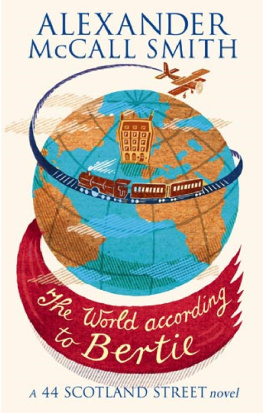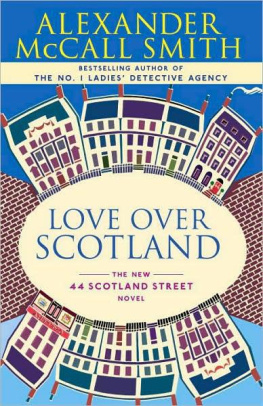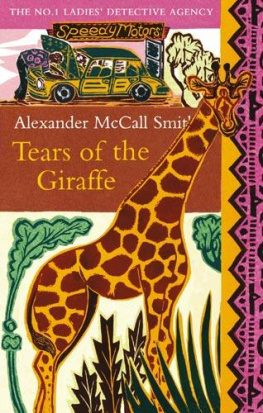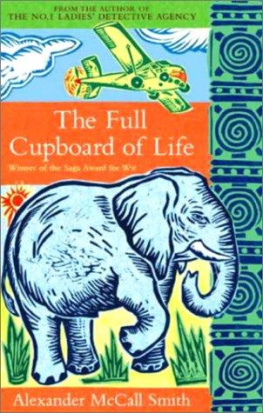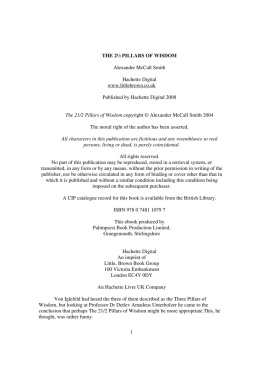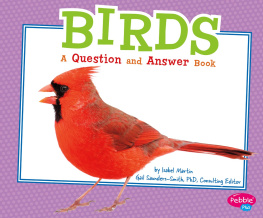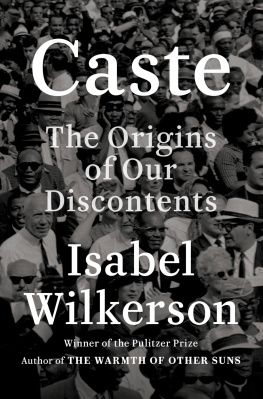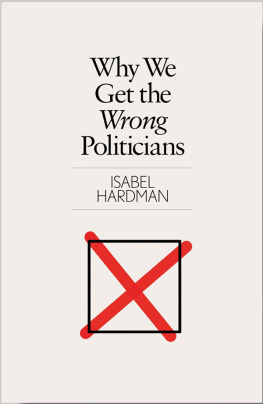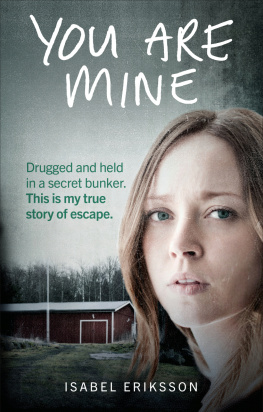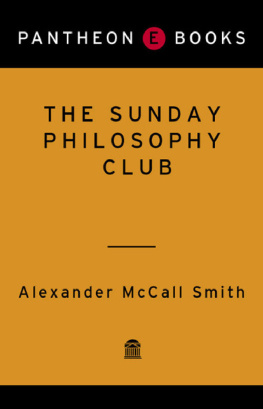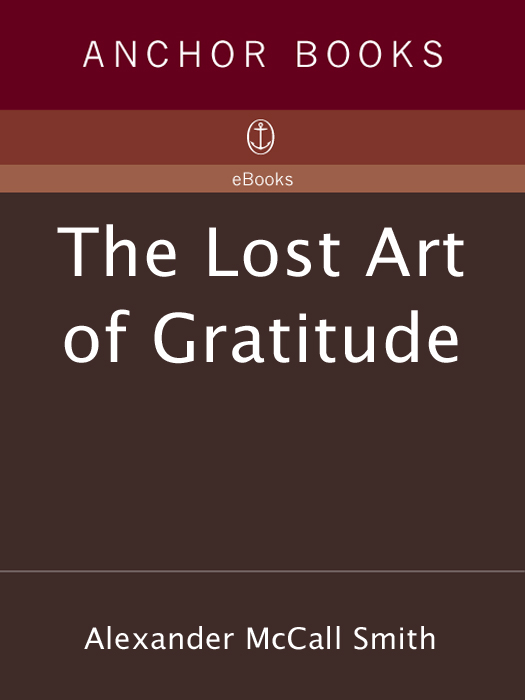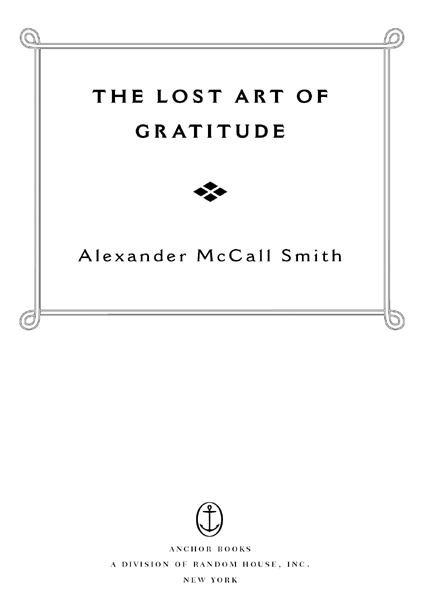Praise for the Isabel Dalhousie Series
Charmingly told. Its graceful prose shines, and Isabels interior monologuesmeditations on a variety of moral questionsare bemused, intelligent and entertaining.
The Seattle Times
Genial. Wise. Glows like a rare jewel.
Entertainment Weekly
Full of his insightful but gentle examinations of human nature. Paints [a] rich portrait of Edinburgh.
Rocky Mountain News
Endearing. Offers tantalizing glimpses of Edinburghs complex character and a nice, long look into the beautiful mind of a thinking woman.
The New York Times Book Review
Habit-forming. Leaves plenty of time for pondering moral conundrums, the drinking of steaming cups of hot brew (coffee, in this case) and gentle probing into the human condition.
The Oregonian
Whimsical. [A] memorable cast of characters. McCall Smiths assessments of fellow humans are piercing and profound. [His] depictions of Edinburgh are vivid and seamless. His fans are sure to embrace these moral peregrinations among the plaid.
San Francisco Chronicle
A witty, ruminative and wise examination of the things that comfort and sustain us.
The Times-Picayune (New Orleans)
Skillfully written. Smiths Scotland is a place where a profound, humane intelligence is at work.
New York Daily News
Utterly charming. Alexander McCall Smith often celebrates the best of humanityits compassion, its intuition, its empathy.
The Capital Times (Madison, Wisconsin)
Alexander McCall Smith
THE LOST ART OF GRATITUDE
Alexander McCall Smith is the author of the international phenomenon The No. 1 Ladies Detective Agency series, the Isabel Dalhousie series, the Portuguese Irregular Verbs series, and the 44 Scotland Street series. He is professor emeritus of medical law at the University of Edinburgh in Scotland and has served on many national and international bodies concerned with bioethics.
www.alexandermccallsmith.com
BOOKS BY ALEXANDER MCCALL SMITH
IN THE ISABEL DALHOUSIE SERIES
The Sunday Philosophy Club
Friends, Lovers, Chocolate
The Right Attitude to Rain
The Careful Use of Compliments
The Comforts of a Muddy Saturday
The Lost Art of Gratitude
The Charming Quirks of Others
IN THE NO. 1 LADIES DETECTIVE AGENCY SERIES
The No. 1 Ladies Detective Agency
Tears of the Giraffe
Morality for Beautiful Girls
The Kalahari Typing School for Men
The Full Cupboard of Life
In the Company of Cheerful Ladies
Blue Shoes and Happiness
The Good Husband of Zebra Drive
The Miracle at Speedy Motors
Tea Time for the Traditionally Built
The Double Comfort Safari Club
IN THE PORTUGUESE IRREGULAR VERBS SERIES
Portuguese Irregular Verbs
The Finer Points of Sausage Dogs
At the Villa of Reduced Circumstances
IN THE 44 SCOTLAND STREET SERIES
44 Scotland Street
Espresso Tales
Love Over Scotland
The World According to Bertie
The Unbearable Lightness of Scones
Corduroy Mansions
Las Orchestra Saves the World
The Girl Who Married a Lion and Other Tales from Africa
FIRST ANCHOR BOOKS EDITION, SEPTEMBER 2010
Copyright 2009 by Alexander McCall Smith
All rights reserved. Published in the United States by Anchor Books, a division of Random House, Inc., New York. Published in Canada by Random House of Canada Limited, Toronto. Originally published in Great Britain by Little, Brown, an imprint of Little, Brown Book Group, London, and subsequently published in hardcover in the United States by Pantheon Books, a division of Random House, Inc., New York, in 2009.
Anchor Books and colophon are registered trademarks of Random House, Inc.
This is a work of fiction. Names, characters, places, and incidents either are the product of the authors imagination or are used fictitiously. Any resemblance to actual persons, living or dead, events, or locales is entirely coincidental.
Excerpts from poems by W. H. Auden appear courtesy of Edward Mendelson, Executor of the Estate of W. H. Auden, and Random House, Inc.
The Library of Congress has cataloged the Pantheon edition as follows:
McCall Smith, Alexander.
The lost art of gratitude / Alexander McCall Smith.
p. cm.
1. Dalhousie, Isabel (Fictitious character)Fiction. 2. Women editorsFiction. 3. Women philosophersFiction. 4. Investment bankersFiction. 5. Edinburgh (Scotland)Fiction. I. Title.
PR6063.C326L67 2009
823.914dc22
2009022618
eISBN: 978-0-307-37857-6
www.anchorbooks.com
v3.1
This book is for Roger Cazaletwith gratitude
Contents
CHAPTER ONE

I T WAS WHILE she was lying in bed that Isabel Dalhousie, philosopher and editor of the Review of Applied Ethics, thought about the things we do. Isabel was a light sleeper; Charlie, her eighteen-month-old son, slept deeply and, she was sure, contentedly; Jamie was somewhere in between. Yet Isabel had little difficulty in getting to sleep. Once she made up her mind to sleep, all that she had to do was to shut her eyes and, sure enough, she would drift off. The same could be done if she surfaced in the course of the night or in those melancholy small hours when both body and spirit could be at their lowest ebb. Then all she had to do was to tell herself that this was not the time to start thinking, and she would quickly return to sleep.
She had wondered about the causes of her light sleeping and had spoken about it to a friend, a specialist in sleep disorders. She had not consulted him professionally, but had brought the matter up over dinner; not before the whole table, of course, but in the intimacy of the one-to-one conversation that people have with those sitting beside them.
I dont like to ask about medical things, she said.
But , he said.
Well, yes. But. You see, you doctors must dread being buttonholed by people who want to talk about their symptoms. There you are at a party and somebody says: Ive been having these twinges of pain in my stomach
Have you?
No, I havent.
He smiled. The old clich, you know. Somebody comes and says, A friend of mine has this rash, you see, and I wondered what it was. That sometimes happens. Doctors understand all about embarrassment, you know.
Isabel nodded. But it must annoy youbeing asked about medical matters.
He thought for a moment. Nihil humanum mihi alienum est, if I may lapse into Latin. I dont set my mind against anything human. Doctors should subscribe to that, I think. Like priests.
Isabel did not think the comparison quite fitting. Priests do disapprove, dont they? Doctors dontor shouldnt. You dont shake your head over your patients behaviour, do you?
If doctors see self-destructive behaviour, they might, he said. If somebody comes in with chronic vascular disease, for example, and you smell the nicotine on his fingers, of course youre going to say something. Or a drinker comes in with liver problems. Youre going to make it clear whats causing the problem.
But you dont ladle on the blame, do you? You dont say things like, This is all your own stupid fault. You dont say that, even if it patently is his stupid fault.


